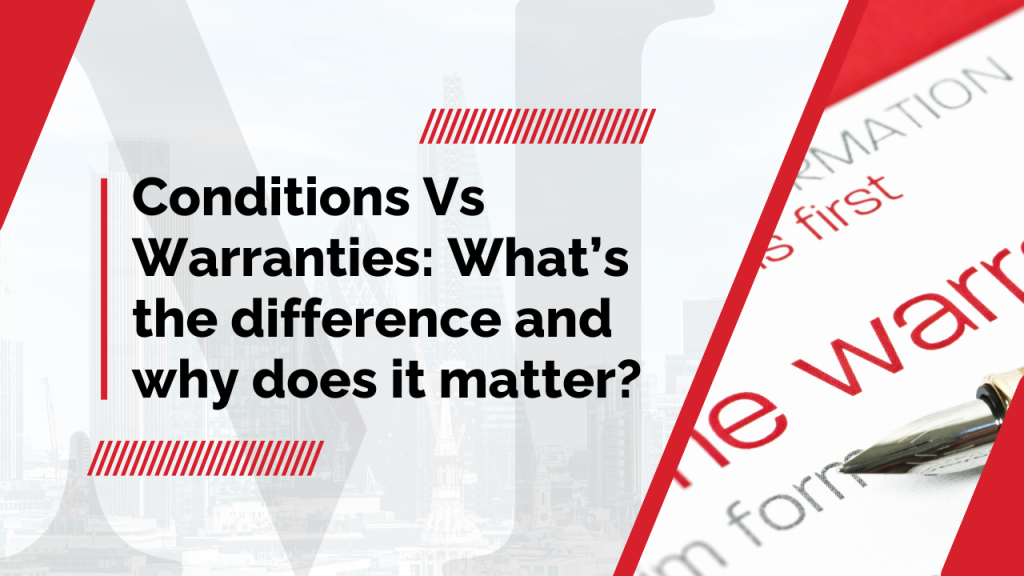I have talked extensively about the importance of accurate contract drafting, the barriers of ineffective contract management and how both can contribute to contract disputes. As part of these discussions, I have also covered the terms that must be clearly defined in these contracts as well as the repercussions should they not be. Part of avoiding or overcoming these repercussions is understanding each moving part of a construction contract.
Therefore, in this newsletter, I will be explaining the difference between conditions and warranties in construction contracts, and why determining this difference is important.
Conditions
In the simplest terms possible, contract conditions are what the contract itself will be built on. Therefore they are terms that must be adhered to by all parties involved, defending the rights and obligations of these parties. Conditions are terms that will directly affect the influence of a contract and breaching/breaking a condition can lead to contract termination.
Examples of conditions in construction contracts: site management, project management, material handling, and waste removal.
Warranties
Warranties work in tandem with conditions to provide additional assurances or guarantees, usually regarding the quality, fitness or performance of the contract subject. In the case of construction contracts, this can pertain to the need to meet specific standards or requirements upon a project’s completion.
Examples of warranties in construction contracts: the standard of construction practises during the project, assurance that workmanship is free from reasonable defects upon completion and the promise that the completed project will deliver as expected.
What are the key differences between Conditions and Warranties?
There are some similarities between conditions and warranties; both aim to protect the interests of all parties, both can be negotiated and both have legal implications if not fulfilled.
However, when it comes to disputes or contract termination, it is vital to understand the key differences. In these cases, it’s important to note that conditions are essential terms while warranties are ancillary. Conditions go to the root of a contract while warranties enhance what is being outlined in the agreement. Therefore, while breaches of conditions can lead to a contract being declared void, failure to meet warranties allows for compensation or damages to be collected.
In cases of disputes or contractual disagreements, it is vital to understand these key differences. Mercantile Barristers are specialist consultants in the law for when the legal issues involved are complex, intricate and so important that the most seasoned expertise in advice and handling is required.

